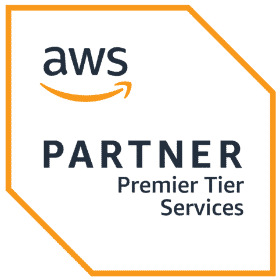Collecting Apple and Spotify Data on Myself : Here is What I Learned
- Read original article here

Datafloq enables anyone to contribute articles, but we value high-quality content. This means that we do not accept SEO link building content, spammy articles, clickbait, articles written by bots and especially not misinformation. Therefore, we have developed an AI, built using multiple built open-source and proprietary tools to instantly define whether an article is written by a human or a bot and determine the level of bias, objectivity, whether it is fact-based or not, sentiment and overall quality.
Articles published on Datafloq need to have a minimum AI score of 60% and we provide this graph to give more detailed information on how we rate this article. Please note that this is a work in progress and if you have any suggestions, feel free to contact us.
Whether we appreciate it or not, everything we do in our daily lives is measurable by some metric. Therefore, data could be collected on every aspect of our daily lives. The advent of modern technology in day-to-day life has meant that there has been a mammoth increase in the amount of this kind of data being generated. In many cases, this kind of data has made huge changes in the way we think about and live our lives. Not only has this made our lives better but has allowed for major advancements in areas such as human behavior, conservationism, urban design, and public transport.
Therefore, I thought it was rather fitting in the spirit of this to use data to really explore some aspects of my life. I set myself two small challenges:
1. The first of which was to explore some of the data that was accessible to me that has been collected through my interactions with technology. All made possible thanks to Article 15 of GDPR, which gives individuals the right to request a copy of any of their personal data which are being ‘processed’.
2. Secondly, to perform some very basic analysis of this data to find some fun, interesting, or useful insights into my life.
The first of these missions was to find just some of the data that has already been generated for me. Very quickly I realised it was apparent that there were reams of different points that I could request access to and download, such as:
This is not an exhaustive list just possibly some of the platforms that are most widely used across the globe. The number of different data sources is likely to be endless and will only grow with time. However, for these purposes, I decided to look at what I could find out about my life from Spotify and Apple Health data.
Since the 10th of November 2015 I have walked at least 15,340km or 20,577,340 steps. That’s roughly equivalent to walking from Cardiff to Queensland, Australia.
Climbed 44,471 flights of stairs, according to Apple Health this is one flight is worth 10ft. So aggregated (according to Apple’s website) this is 135km or the same as 161 and a half Burj Khalifa’s.
In the time period 13th February 2021 to 13th February 2022, I have listened to 55, 537 minutes of music or audio on Spotify. Compared to the Spotify annual reported amounts of 42,875 minutes and 25,6440 minutes in the calendar years 2021 and 2020. A YoY increase of 67.2% and 29.53% respectively.
On average listened to Spotify the most on a Thursday and listened to the most songs in February 2021.
Fig 1. Bar Chart showing the number of steps I’ve taken per year. Data from www.trovalo.io
Fig 2. Total number of songs listened to on Spotify by day of the week.. Data from www.trovalo.io
However, the purpose of this article was never to highlight the amount of data that big companies have collected on me or the ways in which they could process it to understand more about me. Instead, highlight the number of different ways that the same dataset can be represented to understand daily events and processes and draw attention to some inventive ways individuals and companies can use data to enhance our daily lives and progress society. Nobody is suggesting that this data analysis is one of those examples or that it has revealed much in the way of meaningful insight.
It was all made possible thanks to legislation allowing individuals to have greater control over their own personal data as highlighted at the start of this article. I believe that legislation just like that will lead to an even greater data-sharing economy.
One that incentivizes all participants to take part. Here are some examples:
Whilst also balancing the privacy rights of those involved with this data collection, by adhering to the following:
I would invite you to think about some of the ways personal data from your own lives could be used to make better decision-making within the context of your own life. This was a super simple process so if you want to try this for yourself I’ve added some YouTube tutorials on how to download and request your personal data from third-party providers.


